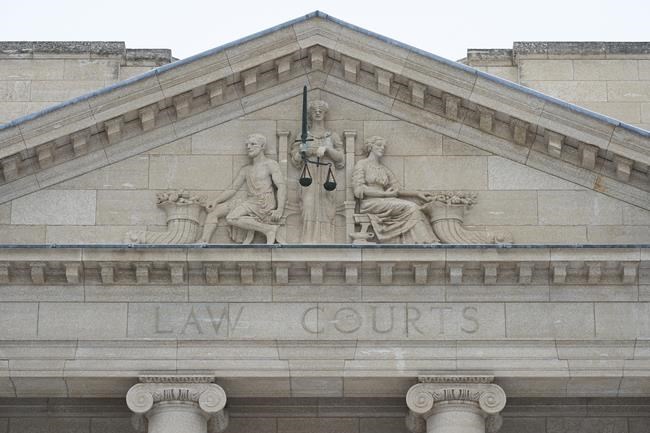WINNIPEG — A judge who ruled against seven Manitoba churches that were fighting public health orders says the restrictions were reasonable and necessary to stem the spread of COVID-19.
Chief Justice Glenn Joyal of Court of Queen's Bench said the orders did not violate the Charter of Rights and Freedomsand the chief provincial public health officer can lawfully impose such restrictions.
"The decision to temporarily close places of worship and otherwise limit the size of gatherings was rational, reasoned and defensible in the circumstances of an undeniable public health crisis," Joyal wrote in one of two judgments in the case released Thursday.
While the closure of churches limited certain charter rights such as the freedom of assembly and freedom of religion, it was reasonable and justifiable, Joyal ruled.
In the second decision, Joyal rejected the churches' argument that only the legislature, not the chief public health officer, should issue public health orders.
"If every public health order and subsequent modification had to be enacted by the Legislative Assembly,it could potentially handcuff and immobilize government’s ability to act in a timely manner," he said.Â
Manitoba Justice Minister Cameron Friesen said the government has enacted reasonable measures to respond to the pandemic and its position has been upheld by the rulings.
"Those measures are demonstrating their value even now, as we continue to see a stabilizing of the daily case counts, even while other jurisdictions are experiencing very significant case spread and hospitalizations," Friesen said in an emailed statement.
The Justice Centre for Constitutional Freedoms, a Calgary-based group representing the churches, said it may appeal the ruling.
"We are disappointed in these decisions and in the unwavering deference accorded to public health officials," Allison Pejovic, a lawyer with the centre, said in a news release.
A special hearing for the case was held in July after Joyal said he learned that the president of the justice centre had hired a private investigator to follow him while he was presiding over the case.
John Carpay took a short leave from his position at the justice centre and professional misconduct complaints were filed with law societies in Manitoba and Alberta.
Throughout the pandemic, there have been times when Manitoba’s health orders restricted worship services. A significant surge of infections in the second wave clogged hospitals and prompted all in-person and drive-in services to be banned.
Government lawyers told court it’s within the bounds of the legislature to grant the chief public health officer the authority to impose reasonable rules.
Dr. Brent Roussin, the chief provincial public health officer, testified that he is bound by using the least restrictive means to stop the spread of the pandemic. The decision about churches was made because, he said, "we were in crisis."
"Our hospitals were full of COVID-19 patients. Our ICUs were full of COVID-19 patients," he said.
Lanette Siragusa, the province's chief nursing officer, told court she supported the orders because hospital staff were exhausted and facing tough decisions about who could get care.
During often heated and confrontational cross-examinations, the health-care leaders were questioned about capacity in hospitals and intensive-care units, as well as the efficacy of certain COVID-19 tests.
Joyal said the case was one of the first in Canada where a church's constitutional challenge also attacked the science that a government relied on to make its decisions.Â
But, the judge said, after the restrictions were put in place, COVID-19 numbers began to decline in Manitoba, which was consistent with what the province's science and modelling predicted.
"Manitobans flattened the curve and avoided a disastrous situation," said Joyal.
Court also heard from Tobias Tissen, a minister at the Church of God Restoration, which is located south of Steinbach in rural Manitoba. Tissen said he cannot force worshippers attending his church to follow public health orders because it is "God's jurisdiction."
Tissen was arrested by RCMP earlier this week on an outstanding warrant for contravening health orders.
Restrictions have been loosened significantly in Manitoba since the spring as cases of COVID-19 dropped and there was less pressure on the health-care system.
Currently, places of worship have to choose between requiring people to be vaccinated or restricting in-person attendance to 33 per cent capacity or 25 people — whichever is more.
Joyal said public health orders achieve an important societal benefit: protecting the health and safety of others.
"I have no difficulty concluding that any of the restrictions on gatherings and in-person faith services that were eventually implemented, were as Manitoba has argued, temporary and necessary."
This report by The Canadian Press was first published Oct. 21, 2021
Kelly Geraldine Malone, The Canadian Press

